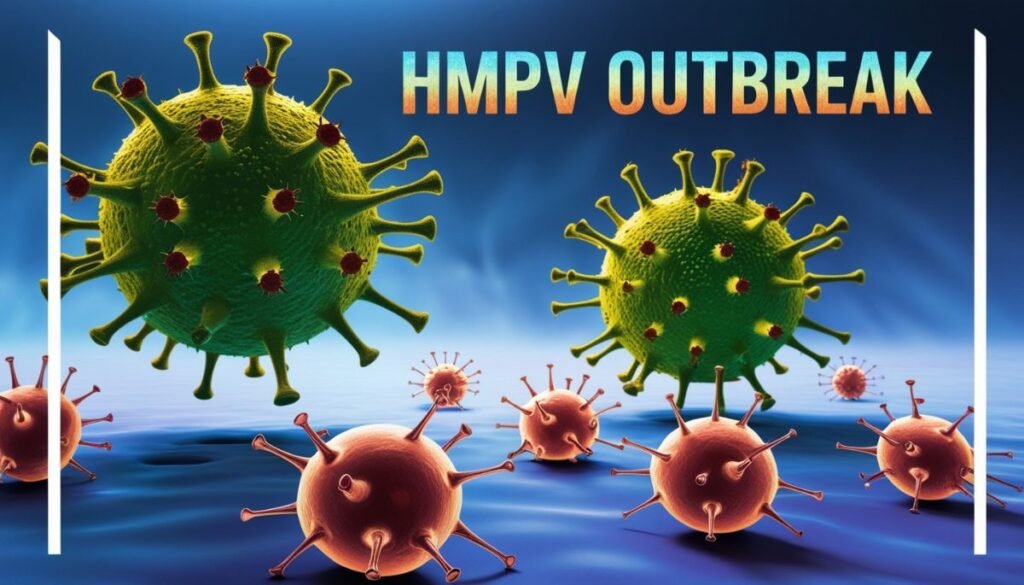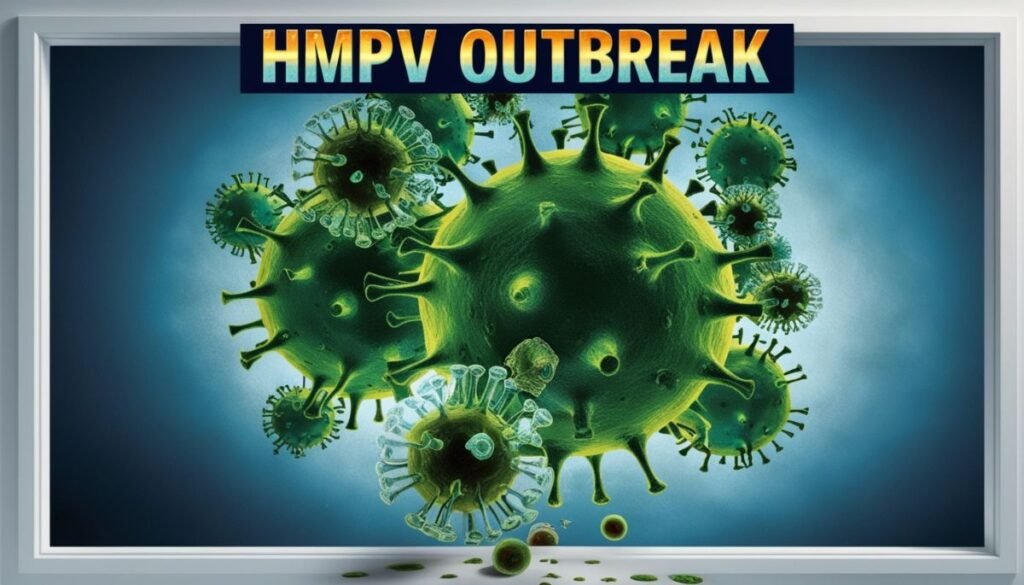The current outbreak of the respiratory disease, the human metapneumovirus HMPV outbreak, has made news. Though it is not new, many people are unaware of this infection. First discovered in 2001, HMPV Since then, it has come to be acknowledged as a major global cause of respiratory diseases.

What is HMPV?
HMPV belongs to the same family of diseases as respiratory syncytial virus (RSV) or parainfluenza. It primarily affects the respiratory system. The virus spreads by intimate contact, coughing, sneezing, and touching contaminated surfaces. Once infected, people might have symptoms that range from moderate to severe.
Symptoms of HMPV
HMPV symptoms are similar to those of the common cold or flu. These symptoms include:
- Fever
- Cough
- Nasal congestion
- Sore throat
- Shortness of breath
- Wheezing
Particularly in young infants, elderly adults, and those with poorly functioning immune systems, serious Human Metapneumovirus HMPV Outbreak, might cause more major diseases, including asthma or pneumonia.
Why is HMPV dangerous?
Though most of the signs are reasonable, the virus can be harmful for certain individuals. Young children, the elderly, and those with pre-existing medical issues are most in danger. For some of these people, HMPV infections can lead to serious problems, including hospitalization.
The Recent Human Metapneumovirus HMPV Outbreak
HMPV cases have surged significantly in the most recent Human Metapneumovirus HMPV Outbreak. Hospitals and medical facilities are noting increasing numbers of individuals with respiratory diseases brought on by this virus. Experts think that conditions like crowded areas and weaker immune systems after recent winters may have helped the disease spread.

The epidemic has raised demand for medical attention. In some places, hospitals are filling rather heavily with patients. This has sparked questions over the ability of healthcare institutions to control the increase of instances.
How is HMPV diagnosed?
Diagnosing HMPV can be difficult. Its symptoms run alongside those of other respiratory conditions such as the flu, COVID-19, and RSV. Doctors may conduct particular laboratory tests to confirm the presence of HMPV. These tests call for a sample taken from the patient’s esophagus or nose.

Treatment Options
There is no specific treatment for HMPV. Most cases resolve on their own with rest and supportive care. Doctors often recommend the following:
- Drinking plenty of fluids
- Using over-the-counter medications to reduce fever and relieve symptoms
- Staying home to avoid spreading the virus
In severe cases, especially those involving trouble breathing, hospitalization can be required. Oxygen therapy and other supporting treatments can be beneficial in such instances.
Preventing HMPV
Preventing HMPV infection involves simple but effective measures. These include:
- Washing hands frequently with soap and water
- Avoiding close contact with sick individuals
- Cleaning and disinfecting commonly touched surfaces
- Wearing masks in crowded or high-risk settings
Vaccines for HMPV are currently under research. However, none are available yet. This makes prevention even more important, especially during Human Metapneumovirus HMPV Outbreak.
Who is Most at Risk?
Certain groups are more likely to experience severe HMPV symptoms. These include:
- Young Children: Infants and toddlers often have immature immune systems. This makes them more susceptible to severe respiratory infections.
- Older Adults: People aged 65 and above are at higher risk due to weakened immune defenses.
- Immunocompromised Individuals: Those with conditions like cancer, HIV, or who are on immunosuppressive medications face higher risks.
- People with Chronic Conditions: Individuals with asthma, chronic obstructive pulmonary disease (COPD), or heart diseases are also vulnerable.
Public Health Response
Outreach efforts worry the need for hygiene and early medical consultation; hospitals are advised to be ready for a possible rise in severe cases; testing for HMPV has also been advised to guarantee correct diagnosis and reporting. Health authorities are working to control the Human Metapneumovirus HMPV Outbreak.
What You Can Do
Should you or a family member show HMPV signs, you should be cautious. If you are sick, stay home to help prevent viral spread. If symptoms get worse, particularly if breathing is trouble or a high temperature does not go away, see a doctor.
Following updates from reputable health groups will keep you informed. Awareness will help you and others stay virus-free.
Human Metapneumovirus HMPV Outbreak
The Human Metapneumovirus HMPV Outbreak is a reminder of the importance of respiratory health. While most infections are minor, vulnerable people face higher risks. Simple preventive actions can go a long way in curbing the spread. As researchers try to develop improved treatments and a vaccine, the best defense against HMPV is to remain vigilant. Responsible behavior and giving cleanliness top priority will help to lessen the effects of this epidemic on our local communities.
